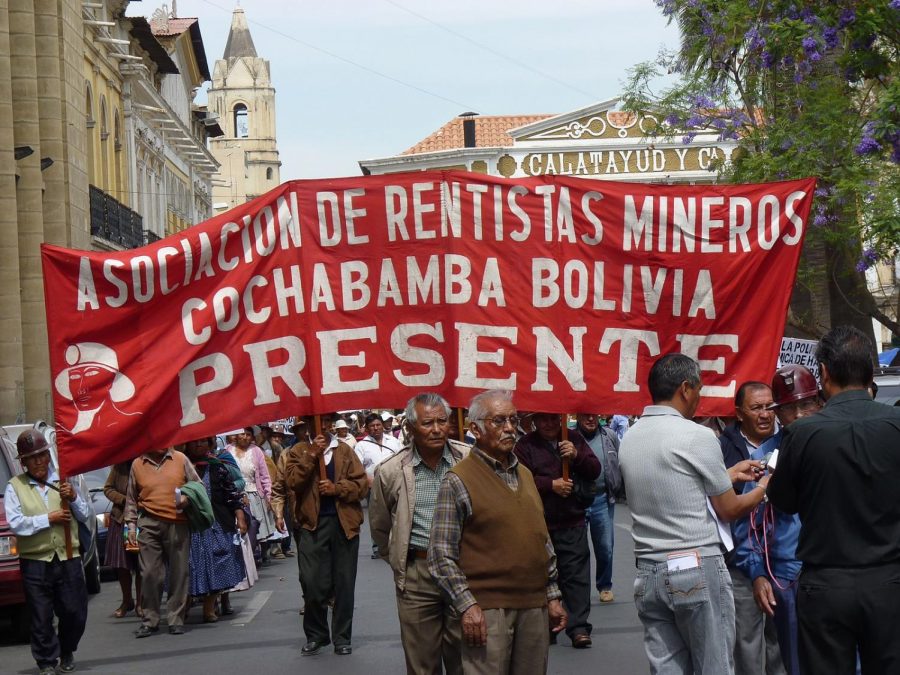A Farewell To My Democracy
My house has always been flooded with Bolivian politics. It was constantly filled by campaign posters, small green and white flags, and, every so often, a pack of reporters would wait on our doorstep for hours at a time. Politics was all I knew and cared about. Not a day would go by in which the name Evo Morales wasn’t mentioned, whether it be by my friends, teachers, or strangers. It all started out as a joke: “Evo is never going to become president”. Suddenly, in 2006, his presidency became an inevitability, for he had promised Bolivians a democracy, a rallying cry that transcended social classes. The elections just reaffirmed that the former coca grower would be in charge of our country. By 2008, “politics” became a curse word and, in many ways, it remains one to this day. Thirteen years later, my family continues to be punished for helping defend the interests of Evo Morales’s opposition. Bolivian politics have shaped the course of my life, and yet I struggled to understand what happened during those years.
Even as a little girl it became known that my dad had taken up an important position of influence in Bolivian politics. Whilst my parents would be constantly held up at political events, strangers would come up to five year old me and my teenage siblings asking about my father, and congratulating us on his campaigns. He had become president of the Pro-Santa Cruz Civic Committee, an influential political group in Santa Cruz seeking greater autonomy from the central government in La Paz. By defending the political and economic interests of the city, the increasing popularity of the Civic Committee party was becoming a threat to Morales’ own Movement For Socialism (MAS). Like any rivalry between political parties before elections, the intensity of the dispute only grew. Morales began by falsely accusing the Pro-Santa Cruz Committee of being ignorant to the racism suffered by highland indigenous groups. And yet, when MAS made manifestations in the city of Cochabamba, they would stop passing buses to ask for identity documents. When any of them were from Santa Cruz, they would be beaten up. That is racism. Nevertheless, Morales continued scrutinizing the actions of the Committee, accusing its members of false allegations that lacked any evidence. However, the weak judicial system was futile as it was controlled by Evo and his party, leaving the persecuted members to be punished and forced into exile for presenting an opposition to the governing party.
After Evo Morales rose to power, he masked the soft authoritarianism of his regime with the progressive ideals and populist strategies that had gained traction in many parts of Latin America. He began to curtail freedoms, concentrate power and push for transformations that would decimate the liberal structures of the country. Legislative assemblies were almost immediately called to increase executive power, weaken the checks and balances of government, and place the law at his own discretion. This allowed Morales to intimidate and smear the opposition without fear of consequence. Even so, he could avoid almost any international criticism or scrutiny. The rise of oil and gas prices weakened the economy and hid its important shortcomings. Talk of social equity and national pride hid the authoritarian nature of his regime, presenting a front of inclusion and progressive ideals. Yet, Bolivia saw the largest number of political persecutions in its modern history; more than 1,000 people escaped into political exile, my own family included.
People knew that the only way to return would be when there was a system of justice strong enough to be given fair case, one that that is not a politized or extorted. Similar to the framework of the Brazilian justice system, which is able to charge powerful people like Brazil’s past president, Lula for his crimes and actions. My country is on the path of what is the inevitable end of what Hugo Chavez called “socialism for the twenty-first century”. One that can be seen in Venezuela today: massive inflation, plummeting education, starvation, and violence rivaled only by ongoing wars. As social and economic problems plague these regimes, they are forced to tighten their grip on power and transition into flagrant dictatorships. Morales, being the last leader remaining from an old wave of liberals, is already discussing his fourth re-election in Bolivia, despite a popular vote against it in February of 2016. The Bolivian economy is at the brink of a recession, drugs from coca producers are producing violence (Morales remains President of the Coca Leaf Producers’ Association), and protests break out constantly all over the country. His renewed grasps for power have started to shine a light on the cracks in his government. Although Morales claims to have pushed forward a new era, the “indigenous icon” has now failed to gain support from the native population. He has forced his party, MAS, to become a war machine used to ensure he remains the incumbent.
International denunciation of these authoritarian regimes can help revitalize opposition as the government loses support at home. Nonetheless, I hope students can better understand what happens in countries like mine, and actively reject the ideas that these regimes pedal. The real wars are those of ideas, and “socialism for the twenty-first century” had South America in the palm of its hand. While more resilient democracies, like Argentina, have already turned the tide on these movements in their own countries, Venezuela, Bolivia, and Ecuador seem to be on a more difficult path. Deeply entrenched rulers will be harder to remove in weaker democracies and, as citizens, we can only hope for a better future, as we prepare to officially bid farewell to democracy.
Sources: Reuters, The Economist, TeleSur, Wall Street Journal












